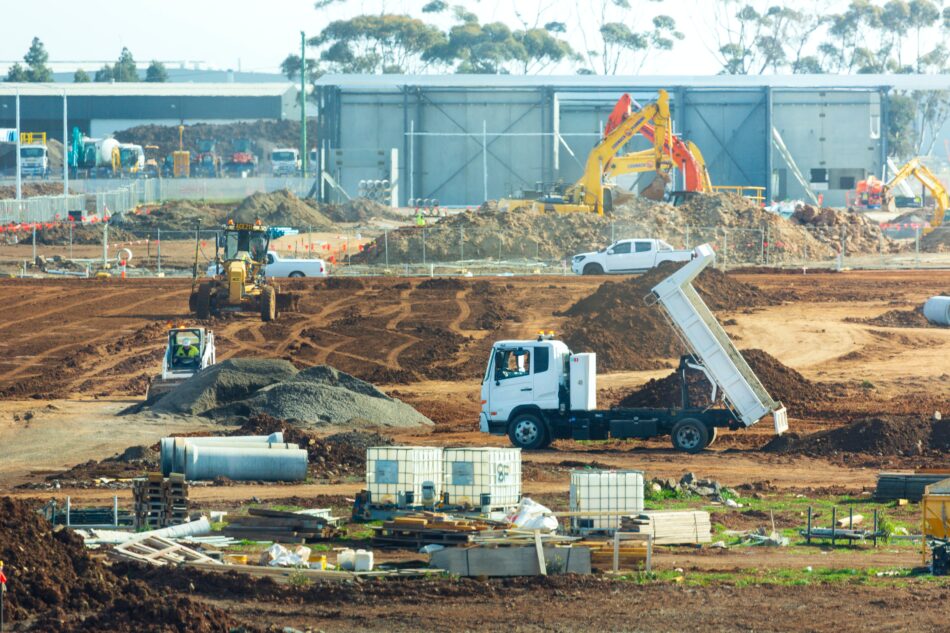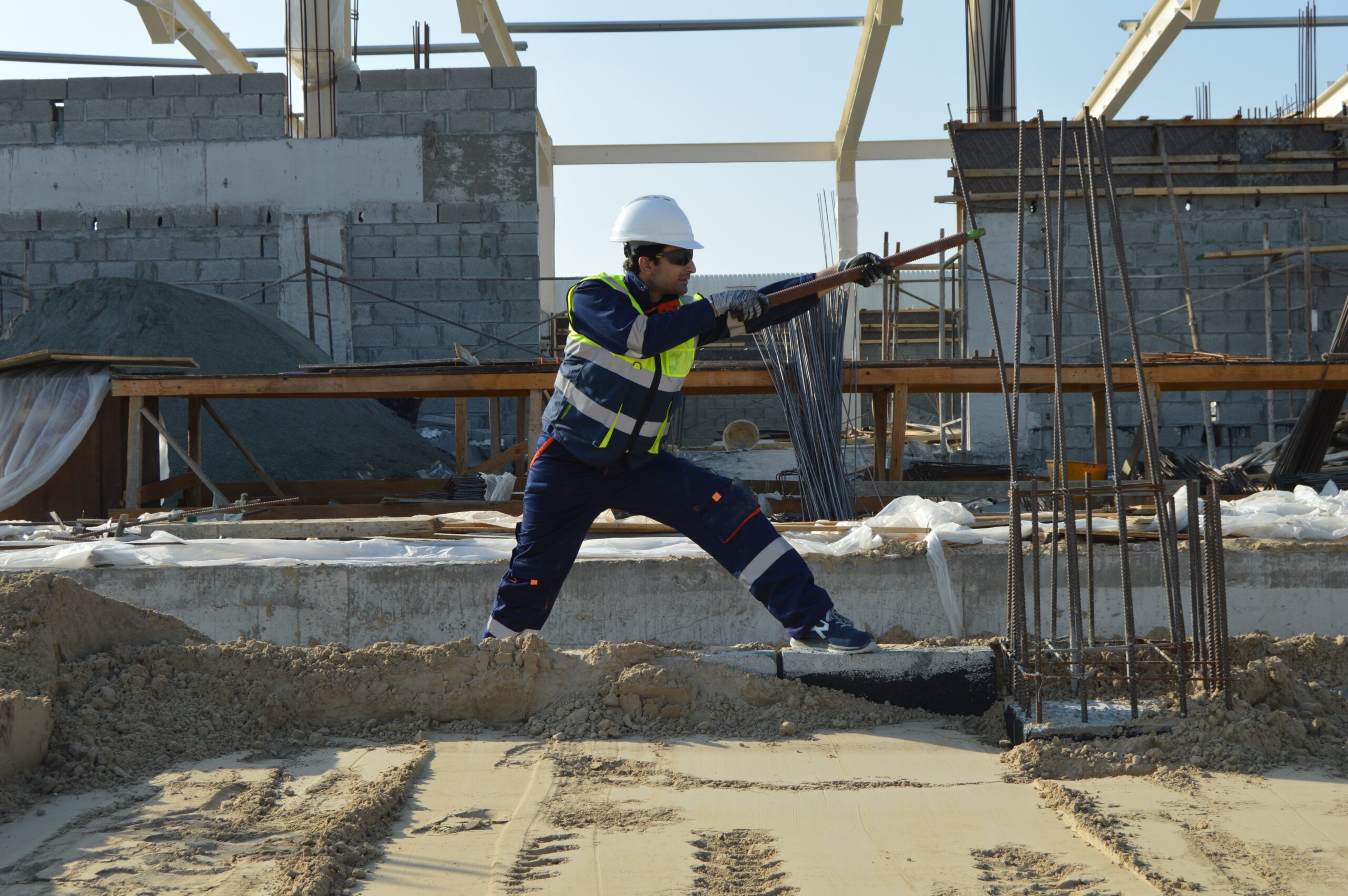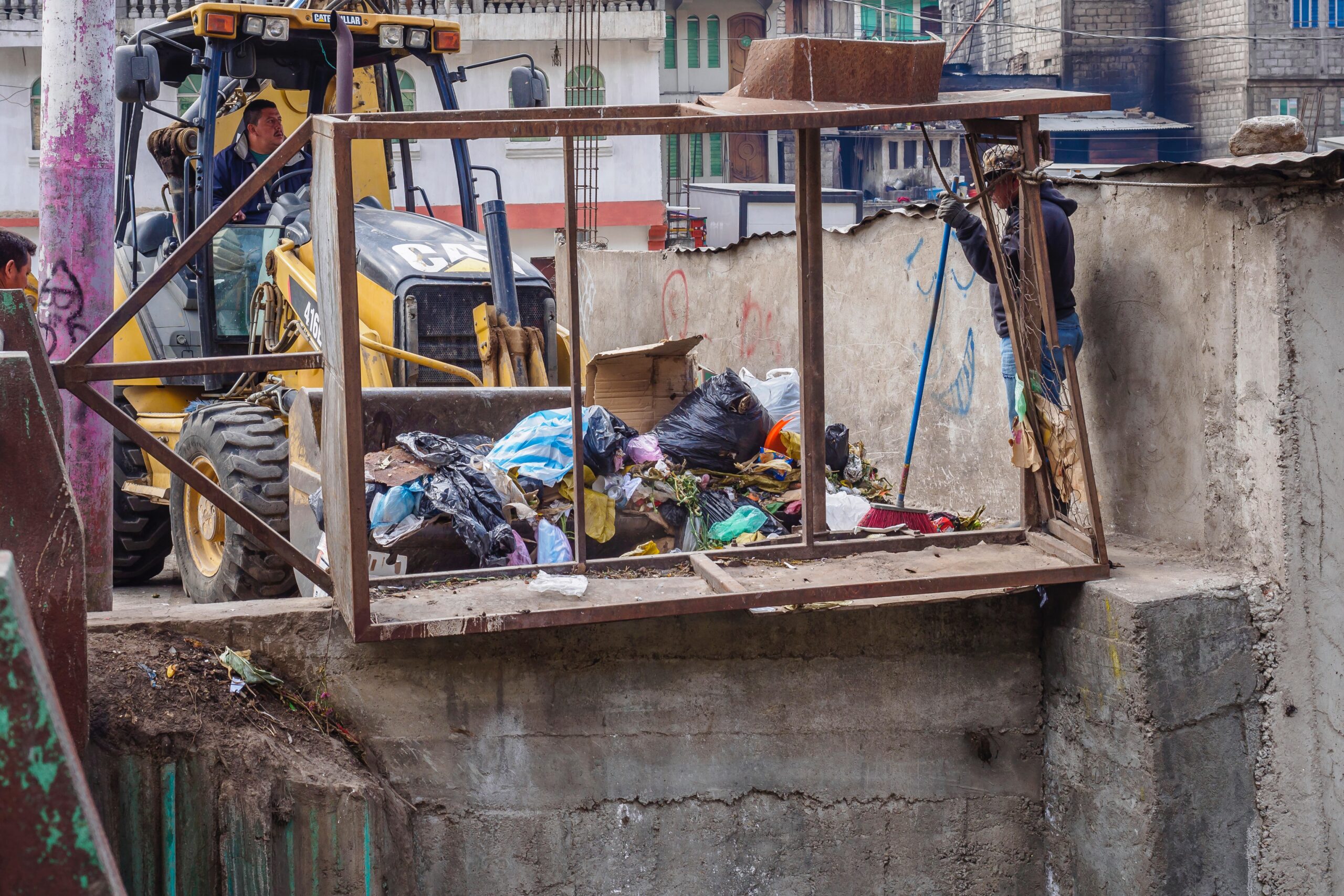
How to Reduce Waste in Construction
Waste in the construction industry is inevitable, no matter how carefully you plan a project. Building, renovation, and demolition create various types of rubbish, including hazardous and non-hazardous waste. Proper management and disposal of any refuse a construction site produces is essential but minimising waste makes dealing with it easier.
Reducing waste on a construction site is important to ensure as little waste as possible goes to landfill. It avoids adding to pollution and emission levels caused by landfills and minimises the risk of waste-related accidents on-site. Plus, reducing construction waste can save your business money on materials and waste disposal costs.
Discover how to reduce waste in construction for businesses and sites of any shape and size.
How to reduce waste
on a construction site
Reducing waste on a construction site saves your organisation money and helps protect the planet by avoiding rubbish going to landfill. There are various preventative steps you can take to minimise the amount of waste your building, renovation, or demolition site creates. Consider these actions to reduce waste on a construction site:
- A strong design – a good design can cut the amount of waste a project produces by using less material with standardised designs that reduce excess off-cuts.
- Efficient ordering – measuring everything to be exact and ordering accurately avoids ending up with excess materials. Regular inventory checks prevent buying extra.
- Buy direct – packaging waste makes up around 10% of construction waste. While packaging is essential to protect materials, going to suppliers direct to buy in bulk offers a solution to avoid individual packaging.
- Minimise mistakes – errors on construction sites cause waste by damaging materials so they can’t be used. Most of these will be accidents but to reduce the chance of mistakes it’s important to carry out a risk assessment and hire competent, skilled, and qualified workers (and supervisors, where relevant).
- Safe storage – protecting your materials from weather conditions and potential theft or vandalism reduces the chance of damage, which may result in unusable materials. This should be in a covered and locked container or location, where possible.
- Recycling bins – ensure bins and storage containers are placed conveniently around your construction site close to the point of waste production. This makes it easy for workers to separate waste and put it in the right container for recycling.
How much waste does the
construction industry produce?
The UK construction industry produces around 100 million tonnes of waste every year – according to the Department for Environment, Food and Rural Affairs (Defra). Almost 68 million tonnes of this are non-hazardous construction waste. Waste from construction, excavation, and demolition accounts for 62% of all UK waste generated annually.
According to UK government figures, of the nearly 68 million tonnes of construction waste produced, 62.6 million tonnes were recovered. This is a recovery rate of 92.3%. Most construction industry waste comes from England, which accounts for 53.6 million tonnes of this total and has a recovery rate of 93.2% based on the latest government figures.
However, these stats show that in the UK around five million tonnes of construction waste still end up in landfill every year. There’s still work to be done to reduce how much waste the construction industry produces.

Why does the construction industry
produce so much waste?
Around a third of the world’s waste is created by the construction industry, which contributes to at least 40% of carbon dioxide emissions for the planet. Constructing and maintaining buildings and infrastructure uses up the most raw materials and resources of any industry. Therefore, it follows that the sector also creates more rubbish than others.
There are various other reasons why the construction industry produces lots of waste:
- Design changes – frequent and last-minute changes to building designs can lead to unneeded materials if they’ve already been ordered.
- Excess ordering – accidentally ordering extra materials may be a safe option but it can result in additional waste at the end of a project.
- Improper handling – a key cause of construction waste is using the wrong handling methods (which can lead to cracked bricks, for example). Improper storage also exposes materials to the elements, which may result in damage and waste.
- External factors – weather effects can create delays to construction and damage materials so they can’t be used.
- Mistakes – general worker mistakes generate waste, whether it’s through accidents or incompetent workers.
- Disposal processes – leaving excess materials on-site, such as scrap metal and concrete, is another big cause of construction waste.
How to manage
construction waste
Managing waste in the construction industry effectively reduces the amount you produce and send to a landfill. What you do before, during, and after a construction project can affect the waste you generate and what happens to it. There are a few key actions you can take to manage your construction waste properly:
- Plan carefully – every construction site should have a Site Waste Management Plan (SWMP) in place before a project starts. This needs to detail where the waste will be produced, an estimation of how much, its type, bin and containers required for storage, and the disposal method. It also needs to cover who is responsible for removing waste from the site (a licensed waste carrier).
- Reuse materials – where possible you should aim to reuse any waste material. Safely store any timber, bricks, and other leftover building materials for use in other projects. Even if some bits are damaged, work out whether you can chip bits off to reuse them elsewhere.
- Deconstruct don’t demolish – deconstructing a building or project is much better for the environment compared to demolition. It enables the soft tear down and removal of materials for reuse, which reduces construction waste. Deconstruction releases fewer toxic dust and heavy metals compared to demolition too.
- Donate leftovers – if you have no use for any leftover materials, consider donating to another organisation instead. Many charities will accept doors, hardware, and fixtures, while community projects and other places will gladly take unused bricks, timber, and other materials.
- Recycle construction waste – any waste you can’t reuse or donate should be sent for recycling where possible. Having recycling containers on-site helps separate recyclable construction waste with ease. These can be for waste metal, plastics, glass, wood, cardboard, and other materials.

How does construction waste
affect the environment?
The construction industry contributes to around 23% of all air pollution, 40% of water pollution, and 50% of landfill waste. It’s also responsible for consuming many of the world’s natural resources – including 40% of all raw stones, gravel, and sand, and about a quarter of all new wood produced each year.
Construction industry waste has a big environmental impact too. Most construction waste isn’t biodegradable, so it can take hundreds of years to break down in a landfill. Plus, lots of it classes as hazardous waste that may leach toxic elements into nearby water, ground, and air if it ends up in a landfill site.
Improper disposal of construction waste adds to pollution and CO2 emission levels, which harm the environment. Recycling and reusing as much waste from the construction industry as possible avoids adding to landfill levels and the damaging impact it can have on the environment.
How to dispose of
construction waste
Removal of any construction waste from a site for disposal must be done by licensed waste carriers. They’ll safely and legally transport the construction waste to a waste management facility for recycling and disposal. Using a professional waste management company is an easy and efficient way to ensure this.
Various UK regulations cover the disposal of construction waste (often depending on its type), which are enforced by the Environment Agency and local authorities. This includes hazardous and non-hazardous waste from construction sites. The exact disposal method and processes vary but reuse and recycling are prioritised where possible.
Arrange disposal of construction waste with Business Waste. We can provide free bins and containers to store all waste you produce on a construction site – you just pay for collection. Our licensed waste carriers will remove them from your site and transport them to a waste management facility for disposal, recycling as much as possible.
Contact us online or call 0800 211 8390 for a free quote for construction waste disposal. One of our friendly and expert team can answer any questions you have and help you recycle and reduce your waste.
Get a free quote for construction waste collection
Get a fast FREE quote for your construction waste collection
- Free quote within 1 hr
- Any type of construction waste
- FREE bins and delivery
- We cover all of the UK